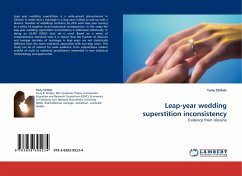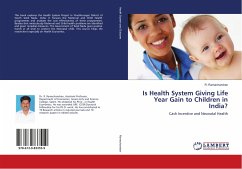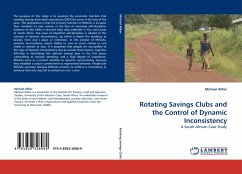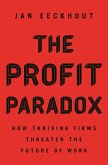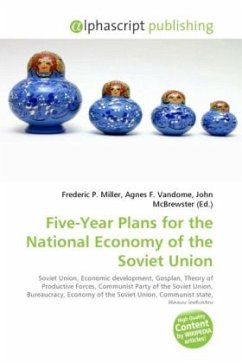Leap year wedding superstition is a wide-spread phenomenon in Ukraine. It states that a marriage in a leap year is likely to end up with a divorce. Number of weddings contracts by 20% each leap year causing to a series of negative socio-economical consequences. In this study the leap year wedding superstition inconsistency is addressed statistically. In doing so, ULMS (2003) data set is used. Based on a series of comprehensive statistical tests it is shown that the fraction of divorces and average duration of marriages in leap years are not statistically different from the same indicators associated with non-leap years. This study can be of interest for wide audience: from superstitious readers wishful of truth to statistical practitioners interested in new statistical methodology and approaches.
Bitte wählen Sie Ihr Anliegen aus.
Rechnungen
Retourenschein anfordern
Bestellstatus
Storno

